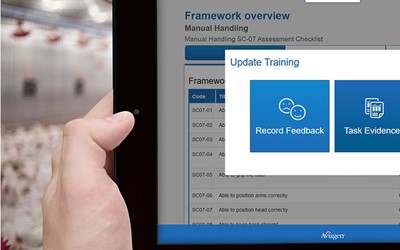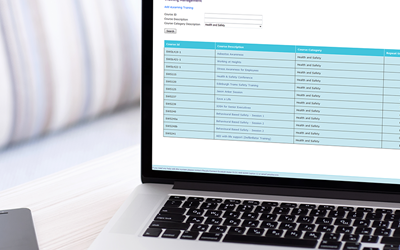What is competency? And why it matters in the workplace
The term competency comes up a lot in workplace discussions, but what does it actually mean? In simple terms, competency is about having the right combination of skills, knowledge, and behaviours to perform a task effectively.
It’s not just about knowing what to do - it’s about how well you apply that knowledge in real-world situations to get the best results.
So how can you be sure your team has the right competencies to succeed? Let’s explore.
Posted 14 January 2025
Competency explained: More than just skills
When we talk about competency, people often think of it as a checklist of skills. And whilst skills are an important part of the picture, competency goes deeper than that. It includes three core elements:
- Skills: The practical abilities needed to perform a task.
- Knowledge: The understanding of concepts, processes, or best practices.
- Behaviours: The actions and attitudes the person brings to the job, such as problem-solving, communication, or adaptability.
So competency isn’t just having the technical know-how - it’s about applying it effectively, even when challenges arise. For example, a project manager might know how to create a project timeline (a skill) and understand best practices for managing resources (knowledge). But if they can’t stay calm under pressure (behaviour), they’re unlikely to deliver a successful project.
Why competency matters
Having competent employees isn’t just a bonus - it’s a necessity. And here are the reasons why:
- Better performance: Competency frameworks help you set clear expectations, so employees know exactly what’s required to succeed in their roles.
- Stronger teams: When you focus on competency, you build a workforce that can handle real-world challenges, work collaboratively, and meet organisational goals.
- Reduced risk: In industries where safety and compliance are critical, competency is essential. It ensures your employees know how to follow procedures and handle unexpected situations.
For example, eCom helped Scottish Water develop a competency framework, which runs on our digital workforce development platform, eNetEnterprise. This framework helps employees demonstrate the required competencies to meet strict regulatory standards, reducing risks and ensuring safe operations across the organisation.
Competency in action: A simple example
To bring this to life, let’s look at a practical example: a customer service representative. To be competent in their role, they need the ability to use the relevant systems and resolve customer queries (skills), an understanding of the company’s products and policies (knowledge), and patience, empathy, and the ability to stay calm under pressure (behaviour).
It’s not enough to have the technical skills to log a complaint. They also need the behaviour to handle frustrated customers professionally and knowledge to provide the right solution. When all these elements come together, they’re truly competent in their role. Competency assessments can help you measure this by observing both performance and behaviour, revealing where gaps exist and where additional support or training is needed.
Competency: The key to a capable workforce
So understanding competency is essential for building a capable, adaptable workforce. It’s more than just hiring people with the right skills - you need to ensure they have the knowledge and behaviours to apply those skills effectively in any situation.
When you focus on competency, you create a culture of continuous improvement, ensuring your employees are ready to meet the challenges of today - and are well prepared for the road ahead.
Free eBook: The Pathway to performance
If you’re looking to understand more about the key considerations for implementing competency and how this will benefit your company, please download our Competency Management eBook, in which we share how you can use competency management as the pathway to performance.
And if you would like our help in writing competency definitions, please do get in touch.
Recent Posts
Level up your event management with eNetLearnWhite-labelling: The secret to training learners actually trust
Turning AI into potential gain
Seamless HR Integration: Streamlining workforce enrolment with eCom's eNet Product Suite
eCom Learning Solutions: Staying ahead in a constantly evolving landscape



